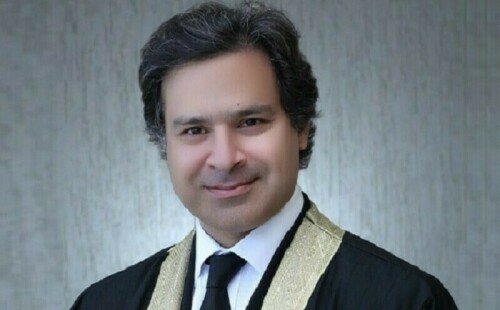ISLAMABAD: The government furnished before the Supreme Court on Thursday a list of 20 individuals who owned 120 properties in the United Arab Emirates (UAE) in a case relating to illegal transfer of money from Pakistan to foreign countries.
The list was submitted by Deputy Attorney General Sohail Mahmood to a three-judge SC bench, headed by Chief Justice Mian Saqib Nisar, in compliance with its earlier order of providing a sample of different categories of people.
Federal Investigation Agency Director General Bashir Memon had informed the court that the FIA could provide the list of 20 people out of a total of 150 individuals having 203 large properties in the UAE — the worth of each property was not less than Rs50 million.
SBP governor says that after court’s intervention it has become very difficult to launder money out of Pakistan
The list contains the names of the persons who have availed the amnesty scheme under the Foreign Assets (Declaration and Repatriation) Ordinance 2018 promulgated on March 26 by former prime minister Shahid Khaqan Abbasi.
The list shows an individual from Lahore owning 22 properties and two residents of Karachi who own 12 properties each in Dubai.
On Sept 3, the Federal Board of Revenue (FBR) had informed the apex court that a staggering $150 billion had been stashed in the UAE in the shape of 550 properties.
On Thursday, the FIA director general informed the court that the agency had identified 894 Pakistanis possessing properties in the UAE of which 374 claimed to have disclosed their properties by taking benefit of the amnesty scheme, whereas 150 people had neither disclosed nor paid taxes on these properties.
He said 82 persons had contested by disowning the properties identified by the FIA, whereas 99 had not even bothered to respond to the notices and appropriate action was being initiated against them.
When the chief justice regretted that the present case was initiated in February, Mr Memon said the FIA’s cybercrime wing had put in hard work day and night but paused for two months during the period when the last government launched the amnesty scheme. The work had now been resumed, he added.
The chief justice asked State Bank of Pakistan (SBP) Governor Tariq Bajwa to suggest a way out as a friend of the court, otherwise simple adjournments of the case would not help much.
The SBP governor informed the chief justice that after the court’s intervention, it had become very difficult to launder money out of Pakistan, adding that as a test case the government could be asked to go against those who had disclosed their properties under the amnesty scheme, but paid no taxes.
The chief justice wondered why the government was sitting idle instead of making laws to take legal against such persons.
Attorney General Anwar Mansoor explained that the only action government could take against such persons was to ask them to pay dues or recover taxes from them. He told the court that the Asset Recovery Unit under Shahzad Akbar had started functioning.
When the chief justice asked could “we solicit details of accounts from Pakistani banks having branches in the UAE to disclose details of their account-holders”, the SBP governor said that since these banks were operating under the licence issued by the UAE government and falling under the foreign jurisdiction, they were not obliged to respond to “our requests”.
“We cannot even recover taxes from persons who have paid taxes abroad for having their properties in these countries,” he explained.
“It means those having large accounts in foreign banks or Swiss accounts cannot be identified,” the chief justice said.
The SBP governor said that recently an agreement had been signed between Pakistan and the United Kingdom after which “we can learn about the properties owned by Pakistanis there”.
At this, the chief justice said the agreement pertained to 150 to 200 properties of Pakistanis in the UK, but there was nothing about the account-holders in banks there.
FBR Chairman Jahanzaib Khan informed the court that his department could not prosecute people under the present tax regime.
“At least the government can start recovering taxes from such people so that the nation could know that the money through which such properties were owned was illicit,” the chief justice said.
Published in Dawn, October 26th, 2018
Download the new Dawn mobile app here:














































Dear visitor, the comments section is undergoing an overhaul and will return soon.